She introduced herself as Saba. Forty years old, she lives in a small town in northern Iran. She tells me she is one of hundreds of transgender people who face abuse from their families. In Saba’s case, her father threatened to kill her when Saba told him she was planning to go to Thailand for gender reassignment surgery. The first time they discussed the surgery, her father was violent, grabbing a pair of scissors and cutting off her long hair and threatening to shave it off altogether. “You wouldn’t believe my parents,” she tells me. “I was only 17 years old, preparing for my university entrance exam. I did not realize the revelation would get such a response from my family because they were part of the so-called intellectual community. I remember my older sister coming to our house with her boyfriend in the 1990s and my parents coped with it very well. That's why I thought I could reveal it to them. But it was a fantasy."
Since the day she told them she planned to become a woman, Saba’s family, especially her father, did everything to try to persuade her to change her mind, including taking Saba to prestigious Tehran counselors and psychologists. "My father thought I was crazy or stubborn,” she says. "My father refused to listen to anything about my surgery or about being trans. Of course, my problem was not only him. My mother, my sister, my grandparents were all constantly hurting me, deep in my soul.
“I knew from the age of seven that I was different from the boys next door and from my friends and other people I knew. I wanted to have long hair like my sister. And varnish my nails. I wanted to put on her clothes and hug her beautiful doll that my father had brought for her from a trip to France. But my father's threats and reprimands and discussions with my mother and their emphasis on me being a boy tore apart all my dreams."
When Saba was 22, she once again raised the issue of gender reassignment surgery. "Surviving this was a miracle," she says. "I studied for four years, with this hope at the back of my mind. I graduated and thought that, maybe as an encouragement and a gift, they would allow me to be myself. My father was happy that I was a successful young man. I was looking for a job and I was a decent person. However, the thought of going to the army was a nightmare. I could not think of being a soldier. I thought I was too confused to save myself from going to the army by continuing my education. First I talked to my sister, who was now independent and married. She cried and said, 'keep my honor in front of my husband's family.’ I told my mother and asked her to help me. She turned sour and said, ‘if you do this, don't talk to me again; just forget you have a mother.’ I decided to leave Iran secretly and went to an immigration lawyer. I explained my story and said I wanted a visa to a European country.”
But Saba didn’t realize that the lawyer would share her plans with a group of her father’s friends. When Saba’s father found out about his son’s plans, he was furious. "My mother was not home," Saba said. "When my father came in, his face was blue. There was a small but very heavy stone vase on one of the tables. He picked it up and threw it at me without saying a word. The base of the vase hit my forehead and I lost consciousness. I was in the hospital when I regained consciousness. I had a deep wound on my face and had needed over 20 stitches. For hours after regaining consciousness, I could not remember anything. Later I found out that my father had left the house after he had beaten me badly enough to almost kill me. The gardener found me in the house and took me to the hospital, which happened to be close to our house. I left my family behind after that.”
How Can People Come Out in Iran?
These sorts of issues and trauma are familiar to Iran’s LGBTQ community. "We know many families have a hard time accepting this," feminist queer activist Fariman Kashani told IranWire, adding that it was extremely difficult to know how to advise people when they prepared to talk to their family about their sexual identities. Sometimes, the danger of violence is very real. The problems, Kashani says, are due “both to ignorance and to the patriarchal way of thinking rooted in people’s minds. I think the first step is for the person who intends to disclose his/her sexual identity to talk to a good counselor first. They should provide details of their personal and family circumstances, and talk about how they should approach their family, and when the right time to do so is. Sometimes it’s not a bad idea to give examples of well-known people. For example, Saman Arastou was a woman and underwent surgery to become a man. She was an actor and he is still an actor. Arastou is still successful. Of course, this is for those who plan to have sex reassignment surgery. For some people, there are other, even greater challenges.”
Fariman Kashani says trans women tend to face greater levels of violence from their families than trans men do. However, trans men tend to keep silent about their ordeals. "You see, [the damage of] patriarchy is sometimes not obvious. Many families involuntarily prefer having sons. The fact that their son wants to have surgery and become a girl makes them angry. Transgender men are more silent, just like men who may be subjected to domestic violence but feel they can’t talk about it because they are men. Then there are trans people who are married to men, which is often a very painful situation for them. The same goes for homosexual people. There is a lot of psychological harassment too. It is about being judged. And people feel they can ask them questions about the most private matters of their lives."
Sexual minority rights activist Shaya Goldoust talked to IranWire about the challenges of coming out to family and friends, and the importance of having the solidarity of the LGBTQ community. Goldoust also said the process could vary considerably from person to person. "The method of coming out, the time, and the person you choose to tell first can help reduce domestic violence. Sometimes a person has to act directly; sometimes a third person who is accepted by the family and understands the situation of the person who needs to come out can be very effective in the process. Sometimes doctors can help. If a doctor accepts the situation, he or she can be very helpful. Sometimes it is necessary to change one's circumstances, that is, to postpone the coming out process until one is financially independent, able to manage on one's own, and is not reliant on the family.”
As in Saba’s case, often psychological and mental harassment start first, and then violence escalates. And, as with Saba’s father, some men can be particularly volatile in their response, prompted by an apparent need to “preserve their honor.”
“Honor Killings”
Siavash, a 23-year-old trans man, was shot dead by his father in Khorramabad in August 2017, in what was described as an “honor killing". After making sure his son was dead, the father then killed himself. At that time, the Shesh-Rang website published news of the tragedy, but the family did not want the identity of their son revealed. Instead, the story referred to the death of a girl named Masoumeh, which had been Siavash’s name on his birth certificate. No photographs of Siavash were published alongside the article or on the mourning announcement.
Mahsa, a 27-year-old trans woman who had reassignment surgery a few years ago, was murdered by her father, brother-in-law, and cousins in the desert near Shadegan in January 2019. According to the Shesh-Rang report, Shadegan police arrested Mahsa's father on counts of complicity in premeditated murder and arrested Mahsa's brother on murder charges. Because the matter concerned members of the same family, there was no one entitled to “blood money,” so Mahsa's father was simply released and did have to serve time in jail or settle any fees.
The stories of Saba, Siavash, and Mahsa are just three of many tales of heartache and physical and emotional abuse within Iran’s LGBTQ community, lives ruined by the most severe forms of patriarchal violence. Iranian society, bound by traditions and cultural values that don’t recognize or acknowledge transgender people, will continue to ruin these lives. This is despite the fact that, under Iranian law, gender reassignment surgery is legal, thanks to a fatwa issued by Ayatollah Khomeini decades ago.
“Gay people in Iran are in a much worse and more horrific situation than other people in the LGBTQ community," says Shaya Goldoust. "A gay man is not tolerated by either the family or society. Iran is one of the few countries in the world where homosexuals are at risk of being sentenced to death for having sex.”
Changes in the Law Provide Little Improvement in Rights
However, Goldoust acknowledges that reforms made in 2011 to Article 109 of the Islamic Penal Code, originally adopted in 1991, have improved the situation, albeit only marginally. Originally, the punishment for sexual intercourse between two men was death. In February 2011, however, changes to the code meant punishment had to be determined taking a number of matters into consideration, including the frequency of sexual intercourse. The “passive” person in a homosexual relationship was still liable to face the death penalty, whereas the “active” person would only face execution in cases where he had used violence against or raped the other person, if he was married, or if he had had sex with his wife before having homosexual intercourse. So, the slight change in the law really only applied to or potentially benefited one person in a homosexual relationship.
Like Fariman Kashani, Shaya Goldoust says LGBTQ people live with a double violence: violence enforced by the law and violence emanating from society itself.
On December 31, 2017, the Tasnim website reported that a young Afghan man living in Iran had been murdered by his two brothers.They took their 25-year-old gay brother to a secluded spot and, after strangling him, threw him in a sack and left him in the desert. The mother of the victim is said to have forgiven her two children and agreed to their release.
"The phenomenon of killing women is terrible,” said Shaya Goldoust. “A woman is harassed by the men of the family because she has done something that endangers the reputation of the family, and sometimes these women die. In the LGBTQ community, however, the situation is even more complicated. You do not need to have done anything ‘wrong’ to be the target of anger. Being transgender, bisexual, queer, or gay is enough to cause infamy and shame for the family and all members of the family — not only the men — will often work together to destroy you.”
Saba recalls the bitter days she has gone through. ”I was lucky. I had a good financial situation. I had savings so I could rent a house after that. I had good friends who gave me a job due to my expertise and specialization, and when I sent a message to my family and asked them to forget me because I had forgotten them, they did not insist on finding me. They seem to be happy with the silent removal of an annoying member of the family like me. I studied, I had surgery, I found a good companion and now I am happy. But the wounds I suffered, the struggle I had to survive, meant I never forgave my family. I know not everyone is lucky and resilient like me. Many people like me may die from the same sort of heavy blow with a vase to the head."
visit the accountability section
In this section of Iran Wire, you can contact the officials and launch your campaign for various problems




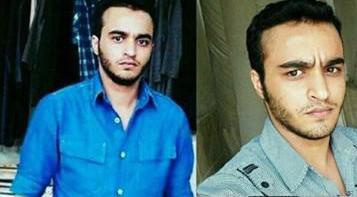
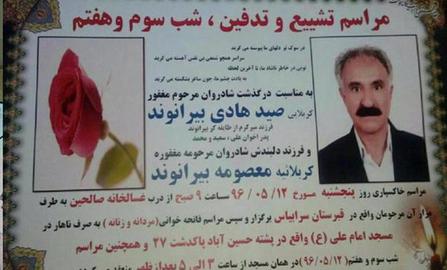
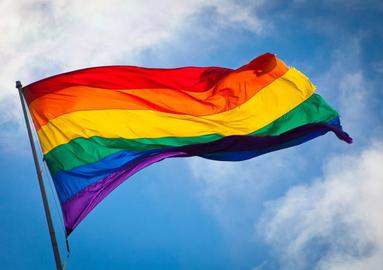
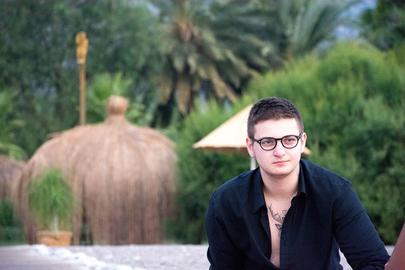
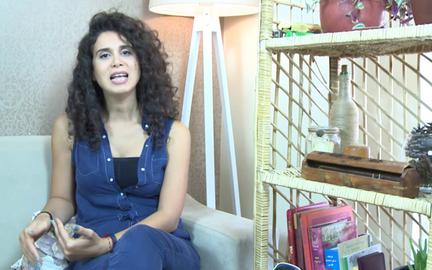



















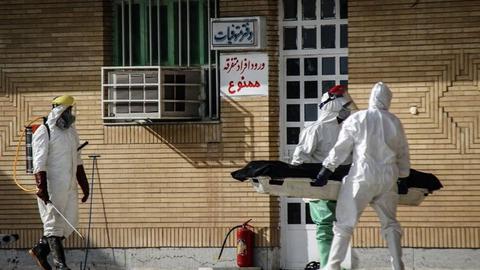
comments